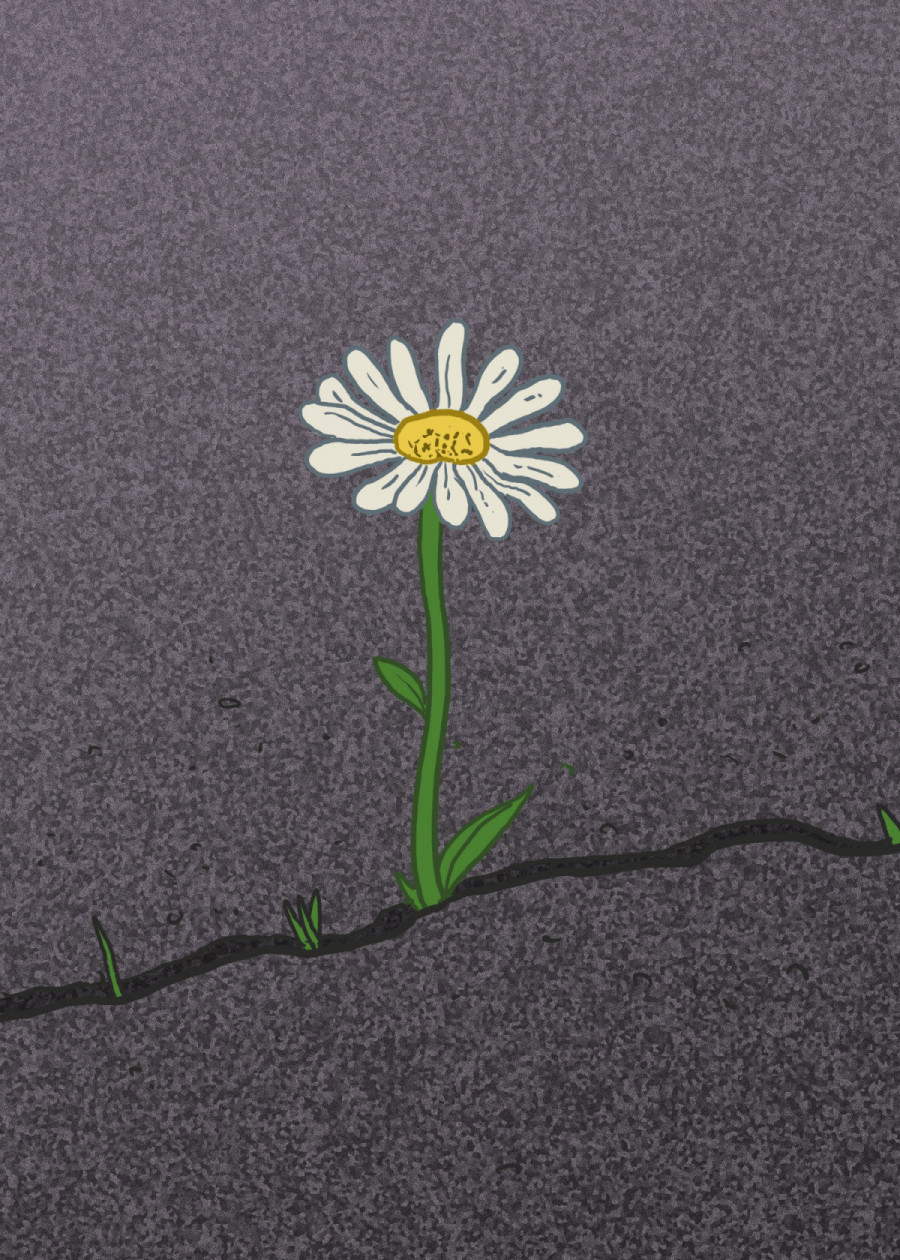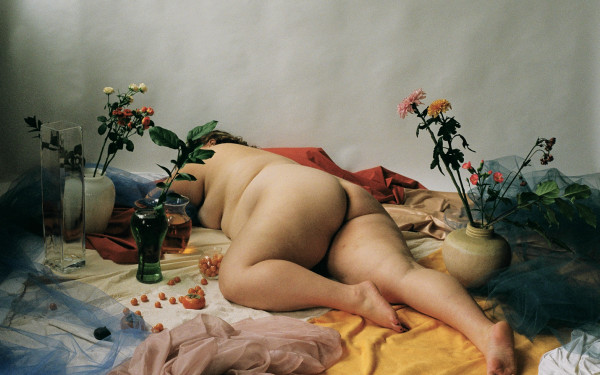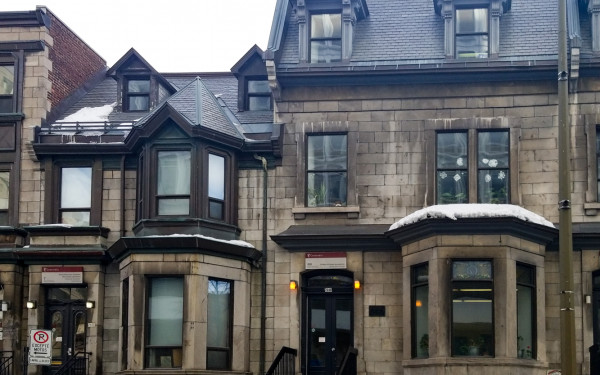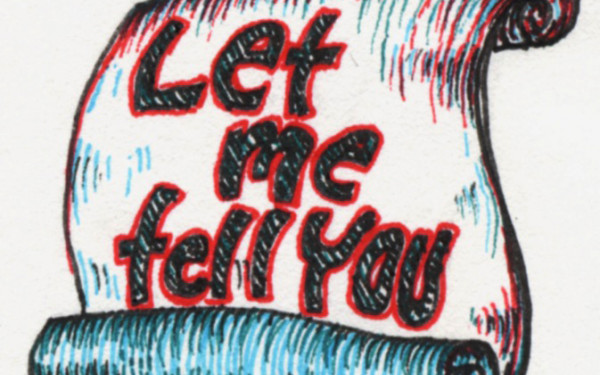Resistance is draining me
What happens when something that’s meant to be temporary lasts a lifetime?
You know that feeling of absolute appreciation for nature you get when you come across a small marigold breaking from a crack in cement?
The admiration you feel when you notice this flower growing through concrete with its delicate white petals reverberates in your own life as a poignant lesson: Resist. Persist. Grow despite the difficulties. Be beautiful and kind even if you’re stuck in concrete.
When we think of resistance, our minds often land primarily on historical stances against corruption, oppression, invading countries. The literal fight for freedom. I asked on social media what resistance meant to some people. Here are some of the answers that stood out to me:
Not giving in to anything or anyone that tries to take away something you believe in
Trying to hold a heavy door that’s gonna smash me anytime soon
Surviving
Vocation
Thriving, proving to them you can resist by surviving
Working every day to shift your perspective and unlearn problematic thought patterns
Believing in myself
Someone also mentioned electricity, and I found that a fitting metaphor: resistors take in the brunt of a charged current, they reduce its force so it’s not too much and whatever you’re charging doesn’t burn. This is the vitality of resistance, isn’t it? Resisting the realities of the world that overwhelm you, that might burn you. I have two problems with that. Firstly, it’s about survival, not really living. Secondly, it’s not enough.
It’s a beautiful sentiment, to learn from that delicate marigold that there’s beauty within hardship. But what happens when there isn’t any? Hi, I’m Fatima, I’m Lebanese, and I think I gave up.
To begin, it is indeed a truth universally acknowledged that 2020 was seriously fucked up. For the first half of the year, I was in Montreal, resisting the heaviness of the pandemic, like all of you. I was resisting the crushing feeling of missing my family, my boyfriend, my home. The second half of the year, I went home to Lebanon—and I took on a different kind of resistance: I was trying, and failing, to resist the soul-destroying side-effect of loving a country that has been in self-destruct mode for over 30 years.
Have you heard the term “Happiest depressed people in the world”? If you Google “Oct. 17, 2019, Revolution Lebanon,” you would get thousands of pictures of smiling faces, people dancing dabke, flags, music, and a gigantic crowd shouting for a better Lebanon. Viva la Resistance! Except that this was a big fat bowl of denial wearing the mask of resistance. Because while thousands were indeed singing and dancing, the other half of the country was dying—and that was before the pandemic.
Can you imagine the level of desperation that drives you to rather die of a virus than hunger?
That was before Aug. 4 and the port explosion that still haunts us. I survived that day, I wasn’t even physically hurt; resisting the effects of experiencing the blast should be second nature, no? I mean, we resist by surviving, right? We resist by smiling and living. Lebanon is known for a fantastic nightlife, beautiful scenery, amazing food, and a people that never tires of giving, but Lebanon is tired.
After last year, after that explosion, after the epic economic downfall that led our currency to lose over 90 per cent of its value, we’re tired. Our politicians look more like an old couple bickering than a government responsible for almost seven million people in a small country with limited resources. Our people continue to be manipulated and divided based on imaginary protection from warlords who have safety nets abroad. The irony.
The middle-class is effectively erased in Lebanon; there are no jobs, no opportunities, only an endless cycle of sucking the air straight out of our lungs and letting them suffer slowly. Those who are still privileged judge the ones going to the streets unmasked to protest “It’s as if there’s no COVID.” Can you imagine the level of desperation that drives you to rather die of a virus than hunger? Lebanon has been so devoid of choice that the only one some have is choosing how to die.
Resistance is glorified. Resistance is romanticized. Resistance is a privilege. Resistance is a two-faced b*tch that gives you the promise of taking the brunt of the charged current but doesn’t tell you it’s not enough. I gave up. I left Lebanon. I couldn’t continue to take in the continuous flow of life-sucking energy that living in Lebanon throws your way, my resistors failed.
I am so, so lucky that my parents left before this year: that was why I was able to leave—I had an out. I was born in Brazil and I had an easy out. And even I failed to resist. Some of my family members and friends who still live there tell me: “what can we do? We have to focus on the glass half-full.” They focus on the roof over their heads, the food on their table, and the air in their lungs because others in the country don’t have any of that.
The truth is the only way to resist the bleakness of living in Lebanon right now is denial. You focus so intently on the glass half full you deny the existence of the empty half. You deny how the water continues to spill out, because otherwise, what happens? I have seen with my own eyes a man light himself on fire. “Trying to hold a heavy door that’s going to smash me anytime soon,” my friend said. Anytime soon.
When we think of resistance we often tend to think of historical moments, right? That’s just it; they were moments, not a lifetime. Movements and revolutions that incited real change. Resistance is meant to be temporary.
I’ve lived in Montreal, Barcelona, Madrid, Brazil, but I always went back to Lebanon. It was my home and I lost it. As I write this, I’m sitting on the small balcony outside my mother’s room, surrounded by her flowers. When we hear airplanes, we duck, then we laugh about it, and then we try not to cry. I want to tell my people I’m sorry I left, I’m sorry I couldn’t help. The only resistance I can take on right now is resisting the black hole that is guilt. I want to see a better future for my country, I want to offer words of hope, but I can’t. I left. I don’t know what else to tell my people.
That little flower growing through concrete, that tree root that breaks the ground, the green-covered walls in old places, nature… how do you do it?
This article originally appeared in The Resistance Issue, published April 13, 2021.







